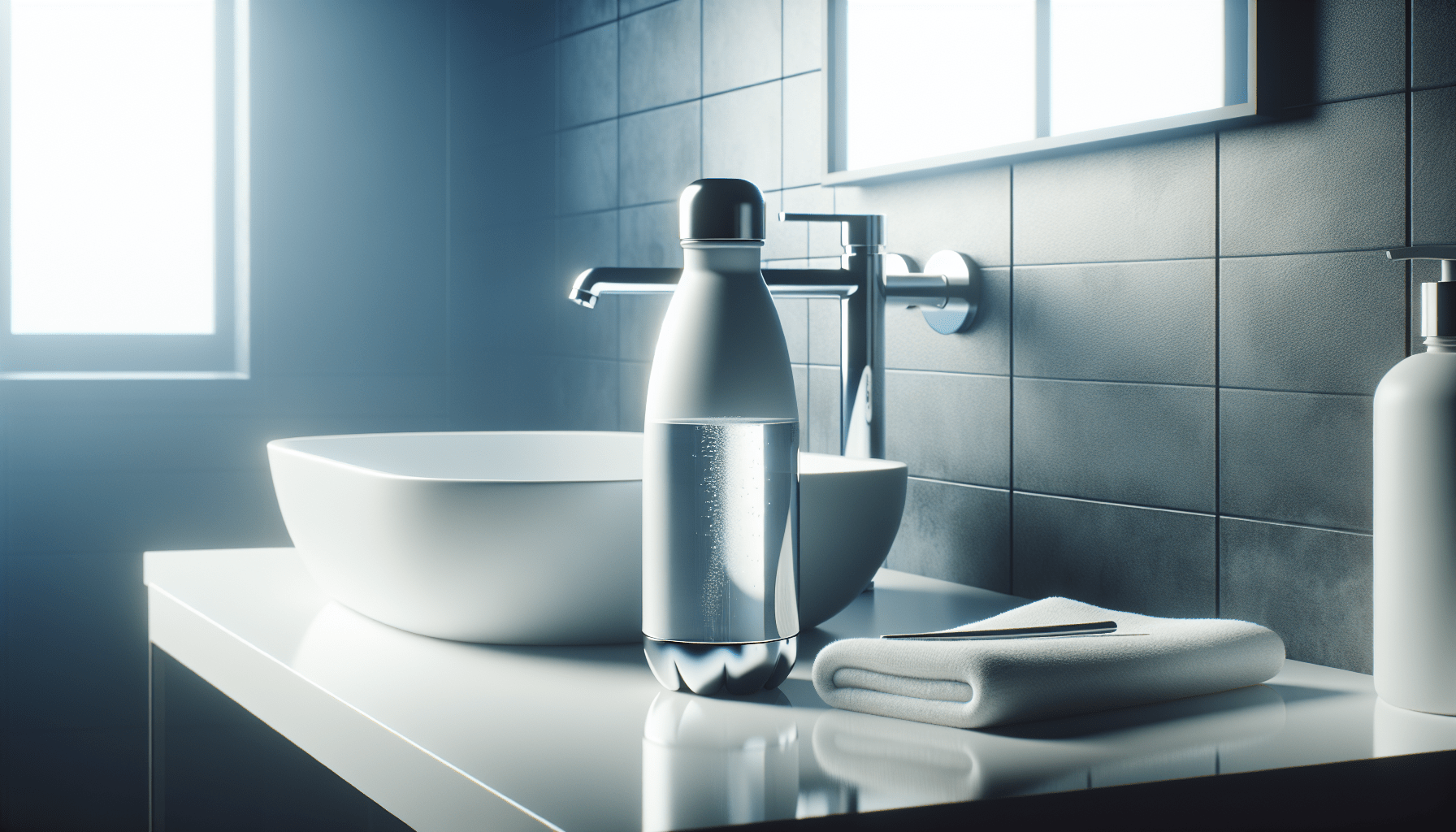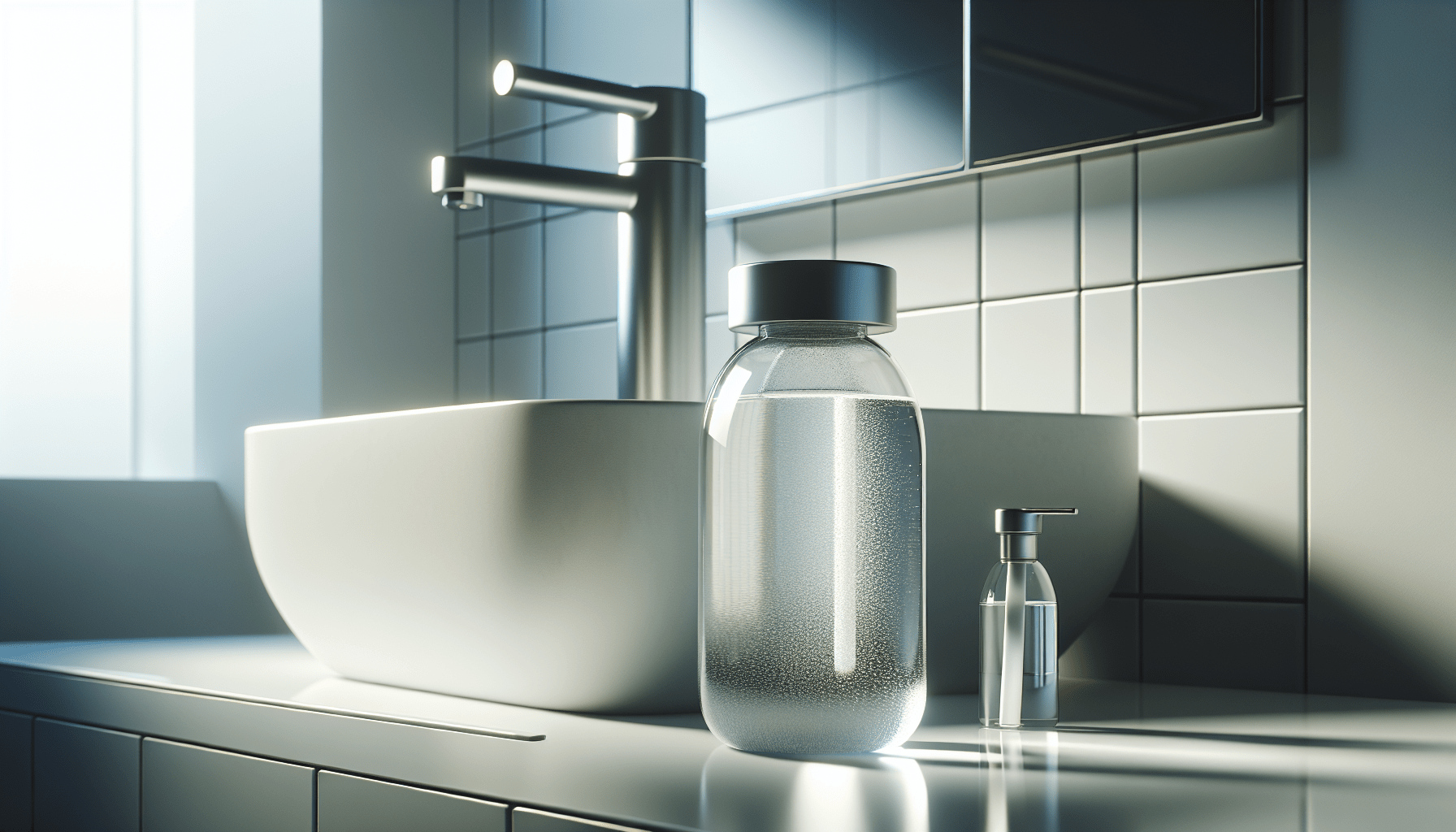Have you ever wondered if the amount of water you drink affects your bladder leakage? When you’re dealing with bladder control issues, such considerations can consume your thoughts. There are mixed messages surrounding the relationship between hydration and bladder health, often leaving you in a bewildered state. Many people think drinking less water will help mitigate bladder leakage, but can dehydration really be the answer, especially as you age?
In this article, we will unfold the common myths surrounding hydration and bladder leakage. We’ll scrutinize whether drinking more water can actually assist in managing bladder control and will delve into various strategies to restore normal bladder function as you get older. Moreover, we’ll explore the best bladder control supplements to combat incontinence effectively.

Understanding Bladder Leakage
Table of Contents
What Is Bladder Leakage?
Bladder leakage, also known as urinary incontinence, is the involuntary release of urine. It’s a common issue that can affect your daily life and personal comfort. The problem may arise during physical activities, sneezing, coughing, or even when you have an intense urge to urinate. There are several types of urinary incontinence, each with different triggers and characteristics.
Types of Urinary Incontinence
Understanding the specific type of urinary incontinence you experience can help in choosing the right treatment.
| Type | Description |
|---|---|
| Stress Incontinence | Involuntary leakage caused by physical activities such as laughing, sneezing, or lifting heavy objects. |
| Urge Incontinence | Also known as overactive bladder, this involves a sudden, intense urge to urinate followed by involuntary leakage. |
| Mixed Incontinence | A combination of stress and urge incontinence. |
| Overflow Incontinence | Occurs when the bladder doesn’t empty properly, causing frequent or continuous dribbling of urine. |
| Functional Incontinence | Urinary leakage due to physical or mental impairments making it difficult to reach the bathroom in time (e.g., arthritis or dementia). |
Why Bladder Control Wanes with Age
As you grow older, changes in your body may contribute to weakened bladder control. The pelvic floor muscles, which support the bladder, can lose strength and elasticity. Hormonal changes, particularly in women undergoing menopause, can also affect bladder function. Additionally, conditions such as diabetes, stroke, and prostate problems in men can exacerbate urinary incontinence.
The Hydration Myth
The Dehydration Fallacy
A common misconception is that drinking less water will reduce bladder leakage. However, restricting fluid intake can lead to concentrated urine, which irritates the bladder lining and may actually worsen incontinence.
The Truth About Hydration
Proper hydration is essential for overall health, including bladder function. While it may seem counterintuitive, drinking the right amount of water can help maintain bladder health and prevent urinary tract infections. Doctors typically recommend around 6-8 glasses of water a day, but this can vary depending on individual needs and lifestyle.
Balancing Hydration and Bladder Control
Optimal Water Intake
Finding the right balance in water intake is crucial. Too much water can lead to frequent trips to the bathroom, while too little can concentrate your urine.
| Scenario | Recommended Action |
|---|---|
| Experiencing Frequent Urination | Reduce fluid intake slightly, particularly in the evening, but ensure you’re not becoming dehydrated. |
| Dark, Strong-Smelling Urine | Increase water intake to dilute urine, which can reduce bladder irritation. |
| Normal Urine Color | Continue with current hydration habits, aiming for clear to light-yellow urine color. |
Tips for Optimal Hydration
- Monitor Urine Color: Your urine should be light in color. Dark, amber-colored urine can indicate dehydration.
- Scheduled Drinking: Drink water at regular intervals throughout the day, rather than all at once.
- Limit Caffeine and Alcohol: Both can irritate the bladder and act as diuretics, increasing urination frequency.
- Adjust Fluid Intake in the Evening: Reducing evening fluid consumption can reduce nocturnal urination, known as nocturia.
Restoring Normal Bladder Function
Pelvic Floor Exercises
Strengthening your pelvic floor muscles can significantly improve bladder control. Pelvic floor exercises, also known as Kegel exercises, involve repeatedly contracting and relaxing the muscles that support your bladder and other pelvic organs.
How to Perform Kegel Exercises:
- Identify the Right Muscles: The pelvic floor muscles are the same muscles you use to stop urinating midstream.
- Contract and Hold: Tighten these muscles for 3-5 seconds, then relax for an equal amount of time.
- Repeat: Do this 10-15 times, three times a day for optimal results.
Bladder Training
Bladder training aims to increase the intervals between urination and improve the amount of urine your bladder can hold comfortably.
Steps for Bladder Training:
- Keep a Diary: Record the times you urinate and any incidents of leakage.
- Scheduled Voiding: Start urinating every hour, then gradually increase the intervals by 15 minutes each week.
- Suppress the Urge: If you feel the urge to urinate before your scheduled time, try to delay by practicing Kegel exercises or distracting yourself.
Dietary Adjustments
Certain foods and beverages can irritate the bladder or act as diuretics, exacerbating incontinence.
Foods to Avoid:
- Caffeine: Found in coffee, tea, and chocolate.
- Alcohol: Can irritate the bladder.
- Spicy Foods: Like hot peppers and spicy sauces.
- Acidic Foods: Such as citrus fruits and tomatoes.

Best Bladder Control Supplements
Natural Supplements
There are several natural supplements that can help manage bladder control by targeting inflammation, supporting muscle function, or balancing hormones.
Popular Natural Supplements:
| Supplement | Benefits |
|---|---|
| Pumpkin Seed Extract | Supports lower urinary tract health by strengthening pelvic floor muscles and reducing inflammation. |
| Saw Palmetto | Particularly beneficial for men, it reduces symptoms of benign prostatic hypertrophy (BPH) and improves urine flow. |
| Magnesium | Helps muscle function and can alleviate symptoms of an overactive bladder. |
| Cranberry Extract | Known for its benefits in reducing urinary tract infections and supporting overall bladder health. |
| Horsetail Herb | An herbal remedy that has been shown to improve bladder strength and reduce inflammation. |
Prescription Medications
In some cases, over-the-counter supplements may not be sufficient, and prescription medications may come into play. These medications can include:
- Anticholinergics: Help calm an overactive bladder.
- Beta-3 Agonists: Relax the bladder muscle and help increase urine storage capacity.
- Topical Estrogen: For postmenopausal women, this can help rejuvenate the tissues in the urethra and vaginal areas.
Lifestyle Changes for Bladder Control
Weight Management
Maintaining a healthy weight can alleviate pressure on the bladder and pelvic floor muscles. Regular exercise, combined with a balanced diet, can make a significant difference.
Smoking Cessation
Smoking can irritate the bladder muscles and increase the risk of bladder cancer. Quitting smoking can improve bladder health and overall well-being.
Scheduled Bathroom Breaks
Incorporating regular bathroom breaks into your daily routine can prevent accidental leaks and give you better control over your bladder.
Dealing with Incontinence in Social Settings
Urinary incontinence can make social activities daunting. However, with the right strategies, you can feel confident and enjoy your life without constant worry about accidents.
Carry Emergency Supplies
Keep a small bag with extra incontinence pads, a change of underwear, and wipes. This can give you peace of mind when you’re out and about.
Choose Accessible Locations
When planning outings, consider places with easily accessible bathrooms. This can reduce anxiety and make your excursions more enjoyable.
Wear Bladder-Friendly Attire
Opt for clothing that can be easily managed in a bathroom setting. Avoid complicated outfits that are difficult to remove.
Professional Treatments for Bladder Leakage
If lifestyle changes and supplements are not sufficient, there are professional treatments available to help manage bladder leakage.
Physical Therapy
A physical therapist specialized in pelvic floor dysfunction can provide tailored exercises and biofeedback tools to improve muscle strength.
Bladder Injections
Botox injections can help calm an overactive bladder and reduce severe urge incontinence. These injections are usually administered by a urologist.
Surgical Options
In more severe cases, surgical interventions such as sling procedures can provide long-term relief by offering additional support to the urethra and bladder neck.
Electric Stimulation
Electrical nerve stimulation techniques like sacral nerve stimulation (SNS) can help regulate bladder function by modifying nerve signals.
Taking the Bladder Health Conversation Forward
Consult a Urologist
If you are experiencing persistent bladder leakage, consulting a urologist can offer specialized insights and tailored treatment plans. They can also conduct tests to determine the underlying cause of your incontinence.
Open Communication
Discussing your condition with family and close friends can provide emotional support. They can help you manage social situations, reducing stress and embarrassment.
Keep Educating Yourself
Stay informed about the latest research and treatments in bladder health. New advancements are continually being made, which can enhance your quality of life.
Final Thoughts
Bladder leakage can be a distressing condition, but understanding the balance between hydration and bladder health can make a considerable difference. Proper hydration, combined with lifestyle modifications, pelvic floor exercises, and appropriate supplements, can help you regain your confidence and maintain normal bladder control. Whether you choose natural supplements, engage in bladder training, or consult a specialist, there are plenty of strategies available to manage bladder leakage effectively.
By taking proactive steps and debunking hydration myths, you can pave the way toward better bladder health and a more comfortable, worry-free life.





